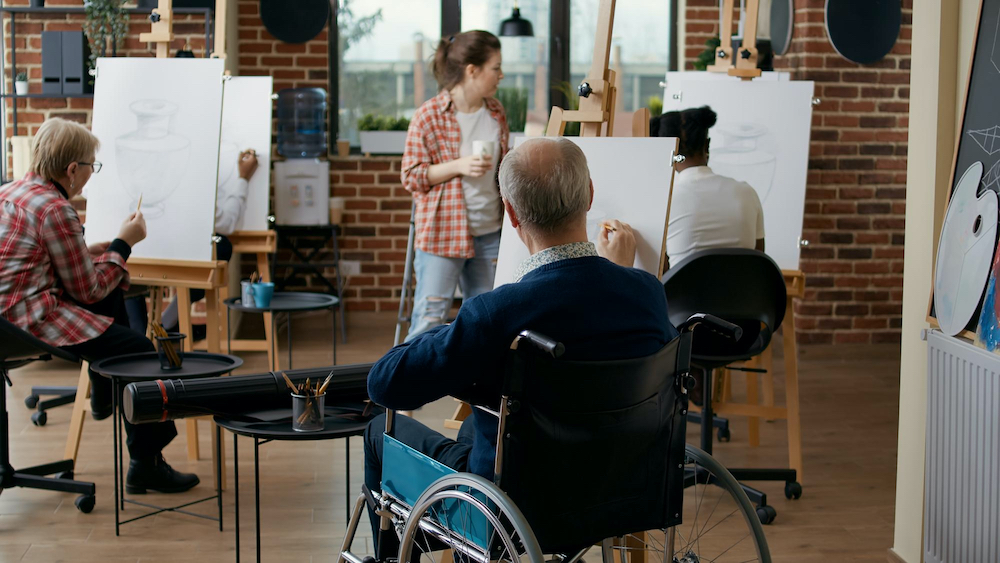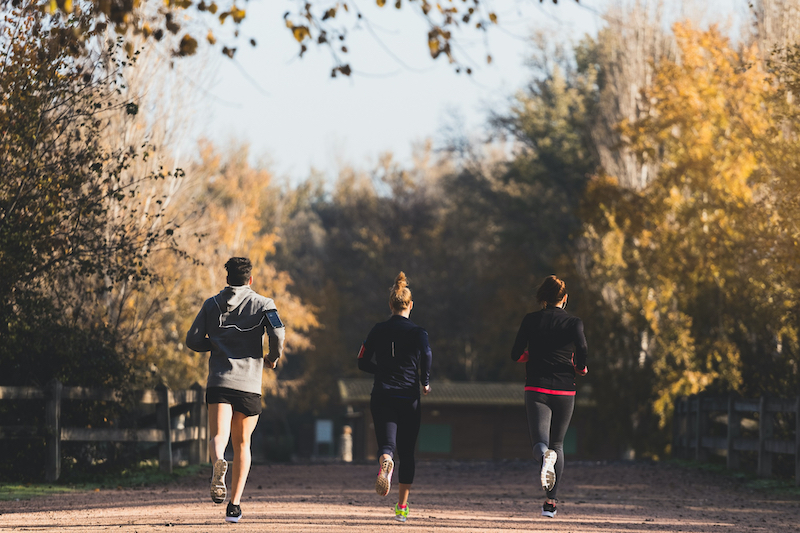Social impact is the future
Greater understanding required as to where and how leisure can have an impact

There is a growing awareness of the social impact of leisure. In companies, governments, social enterprises and in leisure science itself, both in terms of an object of study and a task: the 2014 Butler lecture, for example, made recommendations for leisure scientists to boost social impact and help society understand and address social challenges.
Esther Peperkamp is a lecturer and researcher at Breda University of Applied Sciences and is a member of the Placemaking & Events research group.
Impact or effect?
But what does social impact actually mean? ‘Impact’ is defined in Longman’s Dictionary of Contemporary English as "the effect or influence that an event, situation, etc. has on someone or something”, but in practice, a distinction is often made between impact and effect. Effects refer to the more immediate and visible consequences, which are therefore also easier to measure. Impact is used for longer-term effects, which may not be as visible. These effects have a wider scope - no wonder organisations and companies prefer to create (positive) impact rather than effects. Impact suggests greater complexity, doing justice to a world we have come to find complex.
A definition of social impact
An obvious definition of social impact could then include all impacts that are not economic (or ecological) in nature. However, this raises two problems. Firstly, social impact then degenerates into a catch-all collection of all kinds of long-term effects (making identifying them an impossible task). Secondly, long-term economic and social effects are not always easy to distinguish. For example, employment is an economic good, but having a job also contributes to personal well-being and social contacts, while the possible workload is another negative factor. A narrower definition of social impact is thus needed.
In this context, it is interesting that Statistics Netherlands (CBS) has been conducting research - based on the sustainable development goals - into ‘broad prosperity’ for several years. The term Broad Prosperity covers everything that people consider important for a good quality of life and thus does justice to its complexity, but has also been elaborated in concrete themes (and indicators). These themes are as follows: subjective well-being, material prosperity, health, labour and leisure, housing, society, and safety and environment, with the indicators for ‘society’ corresponding to commonly used indicators for social capital and social cohesion. Social impact could thus be broken down into these themes.
Leisure activities are widely seen as a context for establishing and maintaining social contacts.
Making social impact visible
Subsequent measurement of the social impact of an activity or intervention is difficult because - given its complexity - it involves effects that may also have other causes. The causal link is uncertain. Nevertheless, there are many examples of trying to capture impact in indicators. In activities where social impact is the main objective, theory of change is popular. This involves first examining what possible impact an action or intervention could logically have - taking into account all kinds of other influencing factors - in addition to the effects an organisation wants to achieve. Useful indicators are then sought to match these.
Social contacts as social impact of leisure
To actually create social impact, it is also necessary to understand factors that play a role in whether or not it comes about. In this respect, I would like to highlight an important form of social impact of leisure. Indeed, one traditionally important assumed social impact of ‘leisure’ is its role in connecting people. This is an important topical theme, because although the Monitor Brede Welvaart (Broad Prosperity Monitor) shows that the Netherlands is doing well in terms of ‘society’ compared to other European countries, the trend for the indicators of ‘contact with family, friends and neighbours’ and ‘volunteering’ is downward. And on feelings of discrimination, the Netherlands dangles at the bottom of the EU rankings. This makes the question of the role of leisure time topical. Leisure activities are widely seen as a context for establishing and maintaining social contacts, especially in repeated activities in which people share a common focus: the weekly choir, the regular painting afternoon, maintaining an allotment garden. A lack of meeting opportunities is a major reason why personal relationships are not continued (Mollenhorst et al., 2014). However, it is not always clear how this works.
Creating conditions for social impact
A meeting opportunity alone is not enough, as a study of a ‘living room’ for older people shows. A ‘living room’ where older people can get together once a week to play cards, for example, does not directly result in meaningful social contacts (Peperkamp & Haumahu, 2023). The impact of sports activities - often mentioned as a means to achieve integration - is also questionable. There are studies showing that sport contributes to trust (Brown et al., 2014) and social capital (Darcy et al., 2014), but other studies (Elling, 2005; Spaaij, 2012) show that there are limits to social bonding through sport. And there are also drawbacks to the widely praised community gardens (Glover, 2004).

There seems to be an important role for informal leaders. For example, they play a role in informal running groups (Hambrick et al., 2018) and craft groups (Palmer & Kawakami, 2014). Expressive leadership, a form of leadership where the well-being of participants is central, is sometimes also being referred to. This informal and expressive form of leadership benefits group stability.
The spatial aspect is also important. A meeting place is a physical place: how public and accessible is the space? How is the space laid out? There is a lot of focus in placemaking on public outdoor space, but on a micro level, the design of indoor spaces also plays a role: how are the tables arranged? Does the space invite people to spend time and interact with others in the same space?
In addition, there is the what is called ‘extended leisure experiences’, or the experiences that participants have after the activity by, for example, having a chat about it afterwards. This can be immediately after the primary activity, but also at a later time in another place, and even digitally. This secondary activity enhances the experience of the primary activity and can contribute to group solidarity (the ‘third half’). What’s more, these activities can be a bridge to new activities, creating a chain of activities that in turn create new opportunities for social interaction (Scott & Harmon, 2016).
Leisure activities are widely seen as a context for establishing and maintaining social contacts. There seems to be an important role for informal leaders.
These are just a few examples from research into factors that influence the initiation and maintenance of social contacts.
The future of Leisure
Of course, there is much more to be said about social impact and leisure. It is essential to better understand exactly what social impact is, and how it can be achieved and made visible. This is obviously relevant for social innovation projects, but also for commercial leisure providers who value social responsibility. For a sustainable society, social impact is the future. Here lies an important task for leisure research and leisure education of the future: to provide the knowledge and skills that lead to leisure having (positive) social impact.
Sources
- Brown, K. M., Hoye, R., & Nicholson, M. (2014). Generating trust? Sport and community participation. Journal of Sociology, 50(4), 437-457.
- Darcy, S., Maxwell, H., Edwards, M., Onyx, J., & Sherker, S. (2014). More than a sport and volunteer organisation: Investigating social capital development in a sporting organisation. Sport Management Review, 17(4), 395-406.
- Elling, A. (2005). ‘We zijn vrienden in het veld’. Grenzen aan sociale binding en ‘verbroedering’door sport. Pedagogiek, 24(4), 342-360.
- Glover, T. D. (2004). Social capital in the lived experiences of community gardeners. Leisure Sciences, 26(2), 143-162.
- Hambrick, M. E., Schmidt, S. H., & Cintron, A. M. (2018). Cohesion and leadership in individual sports: a social network analysis of participation in recreational running groups. Managing Sport and Leisure, 23(3), 225-239.
- Mollenhorst, G., Volker, B., & Flap, H. (2014). Changes in personal relationships: How social contexts affect the emergence and discontinuation of relationships. Social Networks, 37, 65-80.
- Palmer, D. A., & Kawakami, A. (2014). Tie Formation and Cohesiveness in a Loosely Organized Group: Knitting Together. Qualitative Report, 19(41).
- Peperkamp, E., & Haumahu, D. (2023). The Community ‘Living Room’ – Social Interactions and Social Capital in a Community Activity in the Netherlands. Under review.
- Scott, D., & Harmon, J. (2016). Extended leisure experiences: A sociological conceptualization. Leisure Sciences, 38(5), 482-488.
- Spaaij, R. (2012). Beyond the playing field: Experiences of sport, social capital, and integration among Somalis in Australia. Ethnic and racial studies, 35(9), 1519-1538.




































































